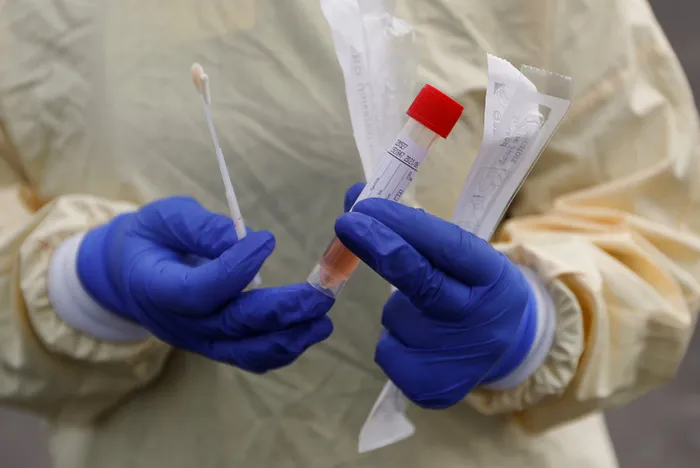Worrying spike in new Covid-19 cases in Gauteng

A nurse holds swabs and test tube to test people for COVID-19 (AP Photo/Paul Sancya)
Durban - The National Institute for Communicable Diseases (NICD) has noted a spike in Covid-19 cases in Gauteng, more especially in the Tshwane region.
NICD Acting Executive Director, Prof Adrian Puren, said they had observed an increase in the 7-day moving average of new Covid cases, and the percentage testing positive in Gauteng, particularly in Tshwane amongst 10 – 29 age group over the past week.
The NICD has also identified a cluster amongst the 20 – 44 age group at an institute of higher education in Tshwane.
Puren said the NICD was monitoring the trends to see if these increases persist.
"Localised increases in case numbers or clusters are not unexpected, however, it is hard to say whether the increases indicate the start of a widespread resurgence," he said.
According to the NICD, previous waves have been driven to a large extent by the emergence of new SARS-CoV-2 variants, Beta in the second wave and Delta in the third wave.
"Genomic sequencing in South Africa has, to date, not yet detected the emergence of any new variants which are making up an increasing proportion of the sequences," Puren said.
He said there were some delays inherent in molecular sequencing, due to the transport of samples and the time taken to process them.
He said regardless of potential new variants in the future, the importance of non-pharmaceutical interventions remained unchanged, and enocuraged individuals to wear masks, practice hand hygiene, maintain social distancing and gather in well ventilated spaces.
“As the endemic endures, I would like to reassure the public that the NICD continues to acutely monitor trends in case numbers, positivity rates and hospitalisations,” Puren said.
IOL
Western Cape continues to see consistent drop in all Covid-19 indicators
Absence of new Covid variant could lead to 4th wave size being smaller this time around
Unsure if you have Covid or the flu? Here’s how to tell the difference
NICD reports spike in influenza cluster outbreaks at schools and workplaces